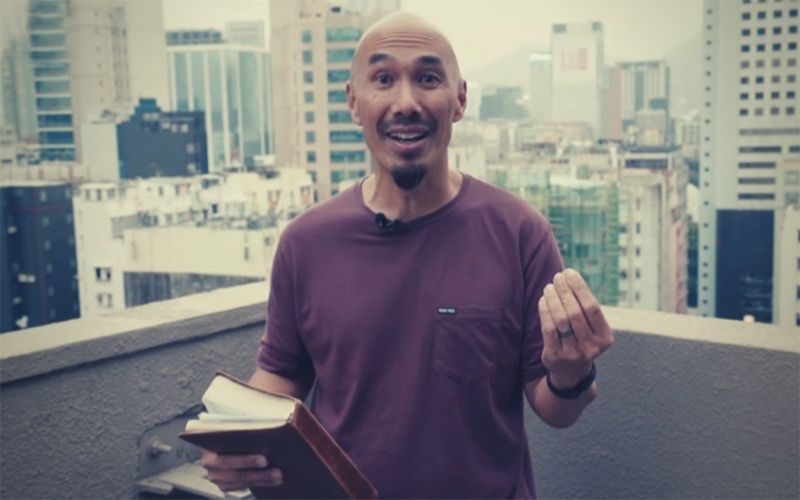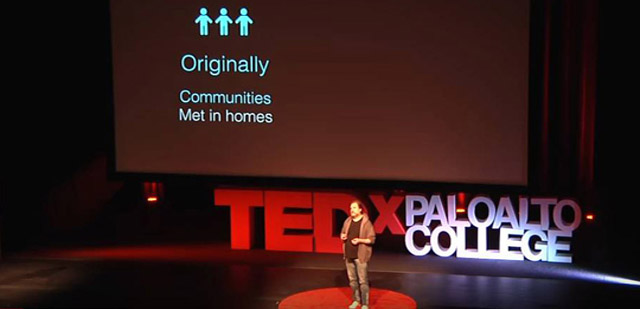Now is the time to evaluate our lives and relationship with God.
Francis Chan had a message for believers and non-believers alike during a brief message on, “Perspective in the Pandemic: Leader Check-In.” Chan joined 50 other evangelical leaders–musicians, speakers, and pastors–in a 10-hour live stream session, to give some Christian perspective on the pandemic. The heart of Chan’s message urged those watching to repent and to consider that perhaps when all of this is over we shouldn’t get back to “church as usual, life as usual.”

“What if God is taking us to a different place?” Chan asked from a balcony in Hong Kong, where he and his family are currently living. “Many of us are anxious to get back to normal. I hope your anxiety is not just so you can go back and get busy with so many things,” Chan explained.
Are We Entering the End Times?
In his quintessential manner, Chan emphatically pleaded with those watching that now is the time to evaluate their lives and relationship with God. When a virus threatens to take you and those you love, it puts into perspective verses of Scripture like James 4:13-14: “Now listen, you who say, ‘Today or tomorrow we will go to this or that city, spend a year there, carry on business and make money.’ Why you do not even know what will happen tomorrow. What is your life? You are a mist that appears for a little while and then vanishes.”
Chan shared a story about a friend who decided to leave his wife for another woman during this time. The evangelist and author shared his incredulous reaction: “You’re going to do that now?!” He said he has a hard time wrapping his mind around how people could choose to continue in sin during this time of uncertainty. Although he says he was never one to proclaim the end times is near, Chan says perhaps “this could be the beginning of the end.” Speaking to the unprecedented nature of these times we’re living in, Chan says “God is doing something now that I’ve never seen in my lifetime…It feels like we’re headed into a new season.”
Chan says “God is doing something now that I’ve never seen in my lifetime…It feels like we’re headed into a new season.”
Indeed, Chan implies that if God is moving us into a new season, it would be unwise to try and reestablish life as we once knew it. “I hope this is a time of growth for you,” Chan told those watching. This is a time when we should be reminding ourselves that Scripture says “to live is Christ and to die is gain” and to ask: Do I really believe that?
“Please get right with the Lord,” Chan said, imploring people to repent. “I’m begging you to think about humbling yourself,” Chan said, referencing James 4:10.
Continuing this thought, Chan said if we are indeed in the End Times, the last thing we should be doing is hoarding goods. He compared the current situation to the story in Luke 12, where a rich “fool” is storing goods and food in his barns. God tells the rich man his life is going to be taken from him that night, yet he was so consumed with storing up these goods that will prove useless to him. The lesson for us in this parable is that it’s ok to have riches, but we are to be generous with what God has given us. It’s “not a time to hoard,” Chan explained.
This Virus Is Showing Us How Unprepared We Are
Moving on to the subject of isolation and lockdown, Chan wonders “could [this] be a blessing in disguise for some of you?” Chan, who recently moved to Hong Kong with his family so they could do more ministry work in Asia, said the isolation and quarantine has forced him to spend more time with God. While he is usually traveling to speak and minister all over the world, Chan says he hasn’t gone anywhere in the last month–a massive diversion from his normal routine.
One good thing he’s seen from the virus and the resulting isolation is that more people are reading the Bible for themselves.
Asking viewers to think about their own situations, Chan posed this question: If you were truly isolated all by yourself, even without the Bible, would you be ok? We have the internet right now so we are not truly isolated, but if we were, Chan asked those watching if they would be able to lead themselves in their walk with the Lord, or even lead others to Christ. Perhaps we are not prepared for such a situation, Chan said. “I believe this virus has taught us how unprepared we are.”
Chan believes this season should also change the way pastors preach. We no longer have the luxury of giving nice, lighthearted sermons that are softened with jokes on either side. “My little self-help tips are not enough anymore,” Chan explained. Instead, the thing people need right now are messages straight from Scripture.
Author: Church Leaders.com/Megan Briggs












